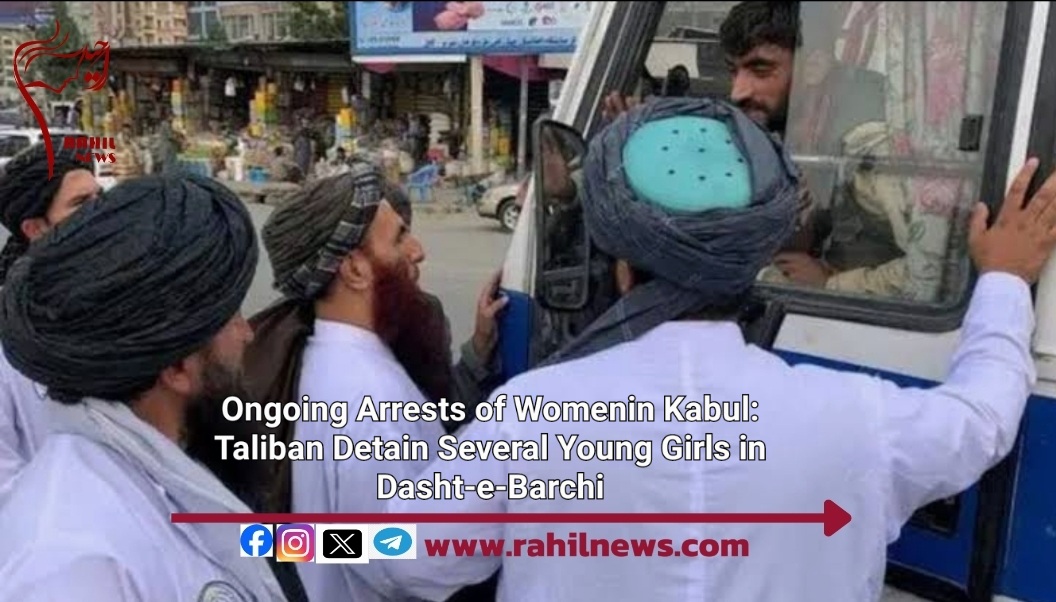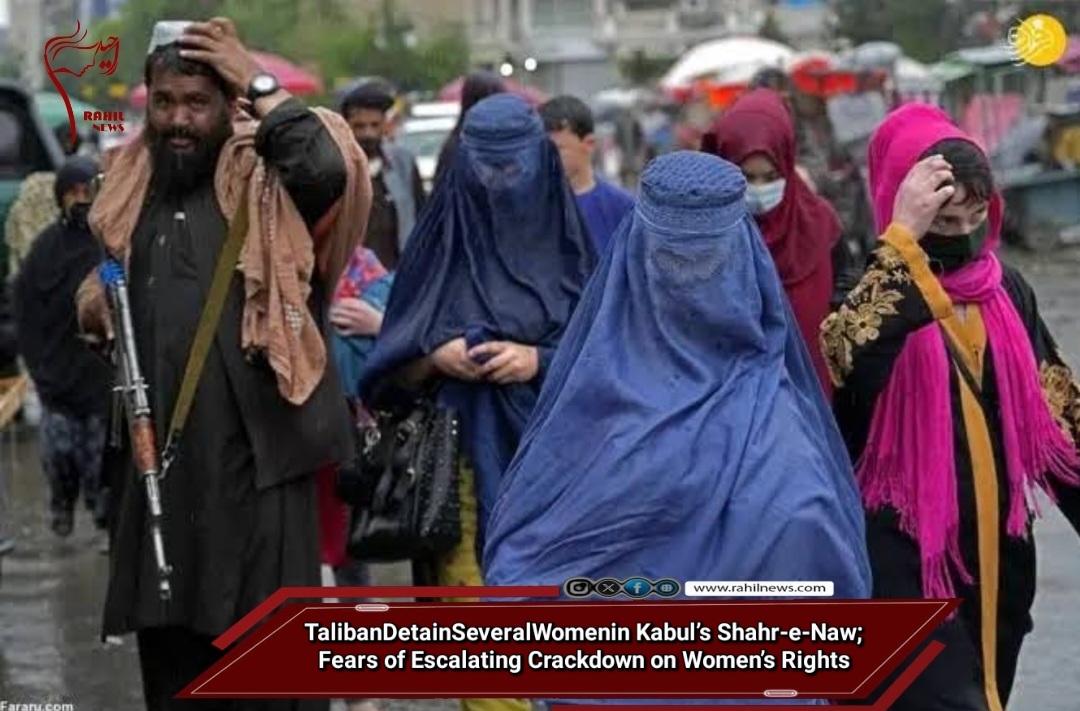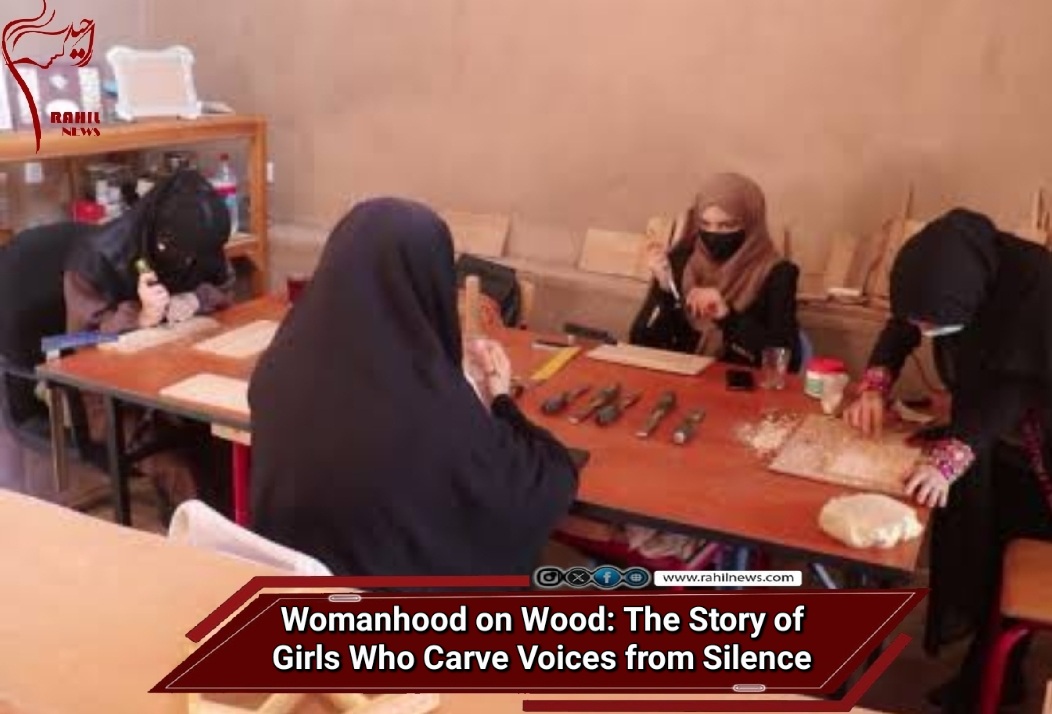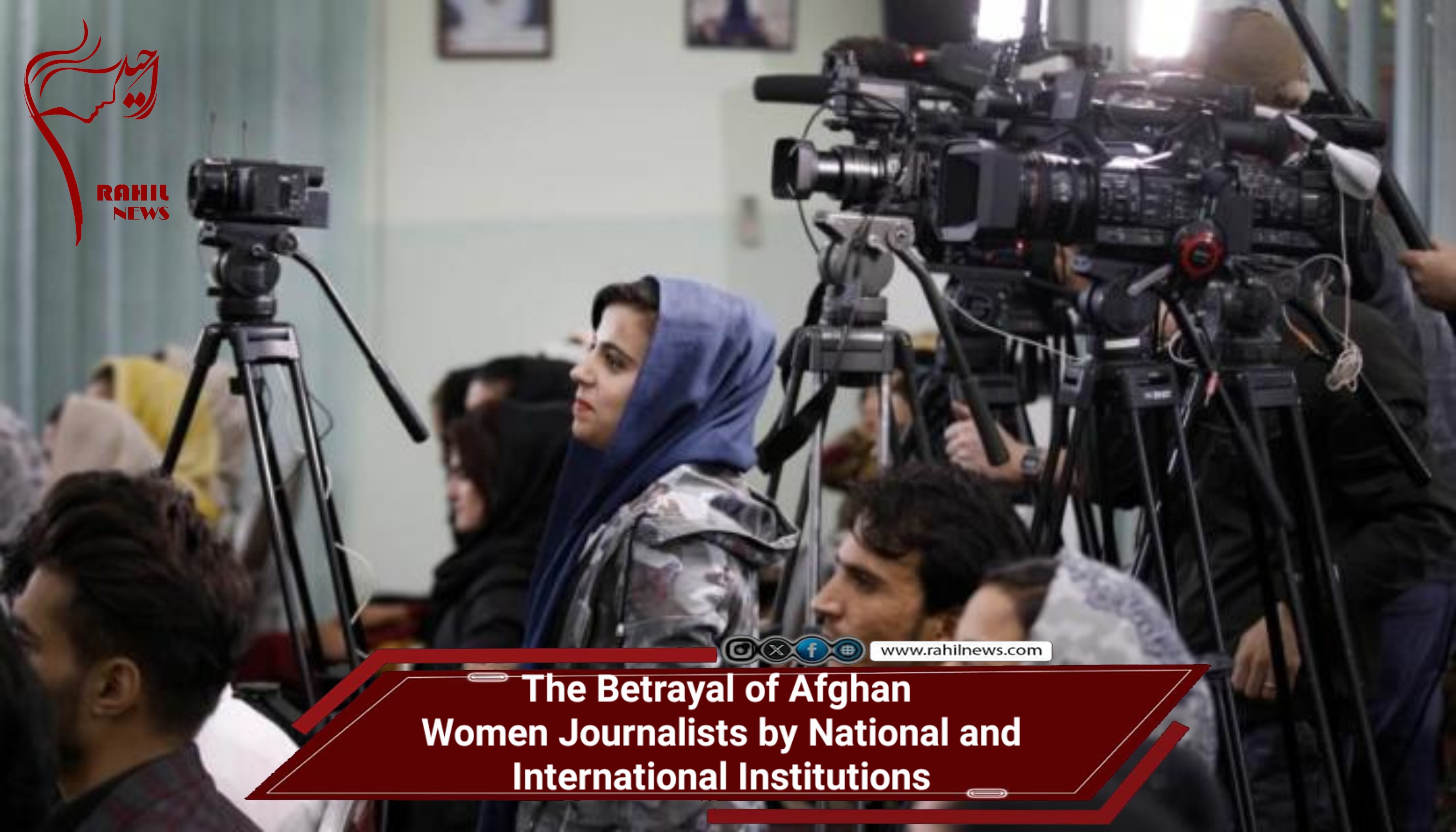
Share:
By: Suraya Jamal
Local sources have confirmed to Rahil News that armed Taliban members and officials from the Ministry for the Promotion of Virtue and Prevention of Vice detained several young women and girls this afternoon (Saturday) from different areas of Dasht-e-Barchi in western Kabul.
Two eyewitnesses told Rahil News that Taliban forces stopped and arrested a number of women near the Shafakhoona bus station along the main Barchi road, forcing them into their vehicles.
Other sources reported that the Taliban detained young women and girls from "Kucha-e-Resalat," "20-meter Street," and around the "Barchi Citizen Market," accusing them of so-called “improper hijab.” According to witnesses, at least ten women were taken from Kucha-e-Resalat in Kabul's 13th district alone.
Over the past week, dozens of other women have also reportedly been detained by the Taliban from various areas in Kabul — including Shahr-e-Naw and Khair Khana — from shops, restaurants, and public transportation.
Relatives of some detainees said that the Taliban have transferred the arrested women to military facilities, including the Ministry of Interior compound. While some were released after providing guarantees, the fate of many others remains unknown.
This is not the first time the Taliban have detained women under the pretext of enforcing “Islamic hijab.” United Nations reports have previously documented cases of abuse and sexual violence against women in Taliban custody.
In recent years, the bodies of several women previously arrested in Dasht-e-Barchi have been discovered on the outskirts of Kabul. Others reportedly committed suicide following their release, while some remain missing to this day.
🔴 Rising Concerns
The ongoing arbitrary arrests and violence against women have sparked growing concern among Kabul residents, especially in marginalized neighborhoods such as Dasht-e-Barchi. Locals say that no national or international body is holding the Taliban accountable for these repeated violations of women's dignity and human rights.




